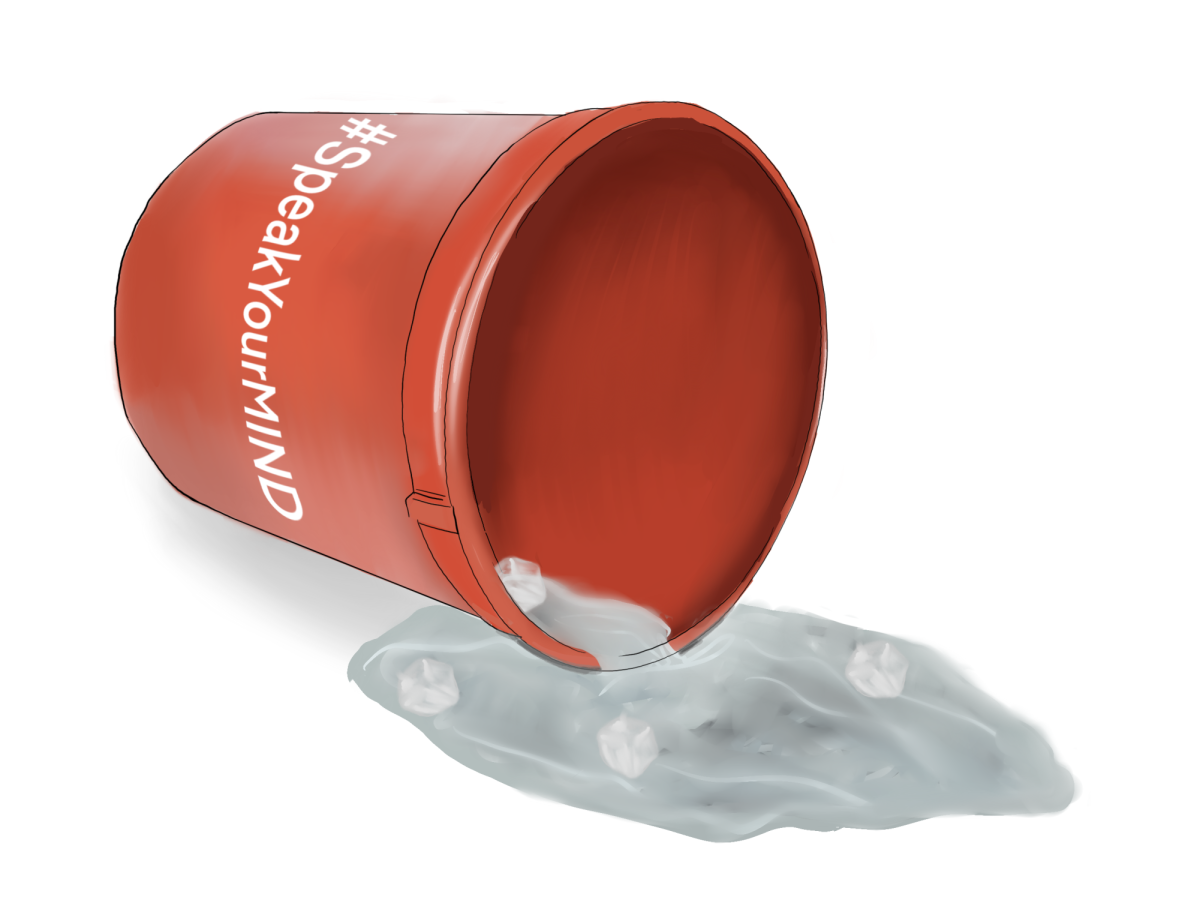If you’ve scrolled through your Instagram Stories in April, you undoubtedly encountered clips of friends or family being doused by a bucket of ice water under the hashtag #SpeakYourMIND, a response to the viral USC Speak Your Mind Challenge.
The challenge is a revival of the 2014 ALS Ice Bucket Challenge, where social media users were encouraged to dump a bucket of ice water on their head in advocacy of amyotrophic lateral sclerosis awareness, then nominate three others to either take on the challenge within 24 hours or make a charitable donation to The ALS Association.
The challenge was renewed — this time in support of mental health awareness — on March 31, 2025 by the University of South Carolina’s (USC) MIND Club. Like its predecessor, USC’s challenge, and its #SpeakYourMIND hashtag, went viral. To date, the tag has been posted 214,000 times on Instagram.
The new iteration follows a format similar to its predecessor: name the challenge, thank the person who nominated you, get drenched by water, then nominate three others to take on the challenge within 24 hours.
But somewhere between the splash of water and the ensuing post to Stories, the challenge lost its purpose.
There are two things — two vital things — missing from this wave of social media posts from water-saturated students: charitable donations and mentions of mental health resources.
The challenge’s rules, posted on the USC MIND Instagram account, are clear: participate, nominate, donate (to the Active Minds mental health charity), share, and “learn and support.”
So far, the viral challenge has raised $384,389 for Active Minds. But the sum, while still valuable in the support of mental health awareness, is still well short of the campaign’s goal of $500,000, and just 0.3% of the $115 million raised over six weeks by The ALS Association in 2014.
The disparity is not due to a lack of popularity, but instead stems from a lack of awareness. According to an Instagram survey administered by the Wildcat April 26, the majority of BOHS students who participated in the challenge stated that they weren’t aware of the challenge’s purpose, and that they did not engage mental health resources after posting their Stories. Just 31% of participants polled acknowledged sharing links to mental health resources, organizations, or charities.
Making the effort to set up a camera and fill a bucket with water, yet not making the effort to include links to mental health services, negates the challenge’s intent: to support organizations through giving, and to lead students to potentially life-saving resources.
It’s fun to participate in the trends that dominate our social media feeds, but we can’t let that fun overshadow the goals of the challenge.
Mental health advocacy is more important than ever because currently, 49.5% of American teens struggle with their mental health. The Speak Your Mind Challenge, like the 2014 ALS Ice Bucket Challenge before it, is an opportunity for all of us to make a difference, and it’s as easy as posting a link in Stories, making a $5 donation, or sharing mental health resources.
If we want to call this a challenge in the name of advocacy, we have to start challenging ourselves to do more than just follow a viral social media trend. Participants are treating the challenge as a performance rather than as a platform to speak up about real resources for real struggles that impact so many of us.
If you intend to take on the Speak Your Mind Challenge (or already have), consider what the challenge really stands for. Share a resource. Post Active Minds’ donation link. Encourage conversation. Help de-stigmatize mental illness. This visibility and your advocacy really can save lives.
Because while the bucket and the clothes you wore while being doused will dry quickly, your impact on mental health awareness doesn’t have to.






Elise Rodriguez • Apr 30, 2025 at 5:42 pm
Your call to action is an impactful challenge beyond the bucket. I’m hoping to see a follow-up with an increase of money and mental health resources in our own BOHS community. Let’s GO WILDCATS!